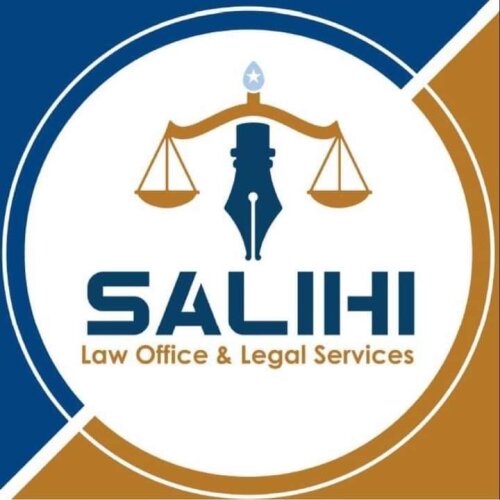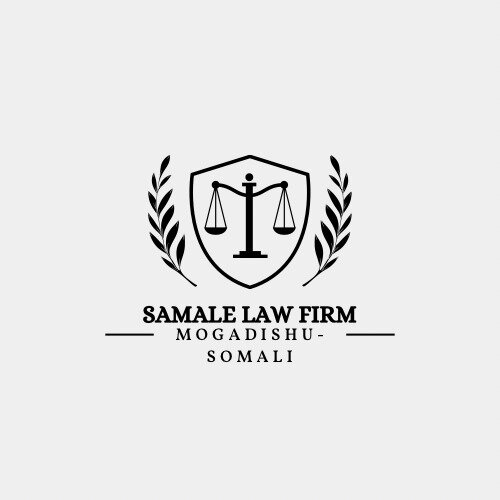About Hiring a Lawyer in Mogadishu, Somalia
Hiring a lawyer in Mogadishu involves several essential steps to ensure that you secure qualified legal representation. The first step is to identify your specific legal needs, which could range from family law issues to business-related matters. Once you have defined your need, you should research different law firms and independent practitioners specializing in that area. It is crucial to verify the credentials, experience, and reputation of prospective lawyers. Initial consultations can help you evaluate the lawyer's approach and ability to address your case. Fee structures vary, so it is important to discuss costs upfront to avoid unforeseen expenses. Most lawyers in Mogadishu are fluent in Somali and may offer services in Arabic or English, which can be beneficial depending on your language preferences.
Why You May Need a Lawyer
There are numerous reasons you might require legal help in Mogadishu. Common legal situations include family issues such as divorce or child custody, business disputes, property transactions, and drafting of wills. Additionally, if you're involved in any civil or criminal litigation, securing legal representation is crucial. The complexities of Somali law, combined with occasional security challenges, make it important to seek professional legal advice to navigate these hurdles effectively. Lawyers can also assist in cases of employment disputes, immigration issues, and mediation or arbitration matters, offering valuable guidance and representation.
Local Laws Overview
The legal system in Mogadishu is a mix of civil, Sharia, and customary law, which can vary considerably by region. Lawyers in Mogadishu often need to navigate laws concerning personal status, commercial activities, and property rights, which are influenced by both civil and Islamic principles. One notable law is the 2016 Somali Federal Constitution, which provides a framework for governance and legal obligations. Regulatory laws related to business and trade have influenced the legal landscape, although customary laws also play a significant role in personal and family disputes. It is important for lawyers to maintain an acute understanding of the evolving legal framework and local customs.
Frequently Asked Questions
How can I find a reputable lawyer in Mogadishu?
Begin by conducting online research, seeking referrals from trusted sources, or consulting local legal directories. Verify the credentials and expertise of potential lawyers.
What should I expect during a legal consultation in Mogadishu?
During a legal consultation, expect to discuss the details of your case, possible legal solutions, timelines, and fees. The lawyer will identify the key issues and outline possible strategies.
Are there legal aid services available in Mogadishu?
Legal aid services are limited but available through certain non-governmental organizations working within Mogadishu. It's recommended to inquire with local NGOs.
How do lawyers in Mogadishu charge for their services?
Most lawyers charge hourly rates or fixed fees for specified services. At times, retainers or contingency fees might be applicable based on case type and agreement.
Can I hire a lawyer who speaks English in Mogadishu?
Yes, many lawyers in Mogadishu offer services in Somali, Arabic, and English to accommodate different client needs.
What are common legal disputes handled by lawyers in Mogadishu?
Common legal disputes include family law cases, property issues, business and contract disputes, and criminal defense cases.
How long does it take to resolve a legal case in Mogadishu?
The time required to resolve a legal case depends on its complexity, the parties involved, and the legal processes necessary. Some cases may resolve in weeks, while others could take months or longer.
What qualifications should I look for in a lawyer in Mogadishu?
Look for qualifications such as legal education, licensing, relevant experience, and familiarity with both Somali law and local customs.
How do businesses handle legal compliance in Mogadishu?
Businesses often hire lawyers to navigate regulatory requirements and ensure compliance with trade, tax, and labor laws, among others.
Is mediation an option in Mogadishu legal disputes?
Yes, mediation is a common practice and can be a cost-effective way to resolve disputes outside of court, often using customary law paths.
Additional Resources
For those in need of legal advice in Mogadishu, several resources can be helpful. The Somali Bar Association offers guidance and support for specific legal matters. International organizations such as the United Nations Development Programme (UNDP) provide insight and resources related to human rights and justice. Local NGOs often offer legal aid to vulnerable populations, and consulting bodies like the Somali Chamber of Commerce can be useful for business-related legal inquiries.
Next Steps
If you believe you need legal assistance in Mogadishu, the first step is to conduct thorough research on law firms or practitioners specializing in your area of concern. Establish contact through consultations and verify the lawyer's credentials and experience. Prepare documentation relevant to your case and clearly communicate your expectations and needs. Considering the multilingual capabilities of many practitioners in Mogadishu, ensure that you specify any language preferences you might have. Understand the fee structures and remain proactive in following the legal advice provided as you navigate your situation.
Lawzana helps you find the best lawyers and law firms in Mogadishu through a curated and pre-screened list of qualified legal professionals. Our platform offers rankings and detailed profiles of attorneys and law firms, allowing you to compare based on practice areas, experience, and client feedback.
Each profile includes a description of the firm's areas of practice, client reviews, team members and partners, year of establishment, spoken languages, office locations, contact information, social media presence, and any published articles or resources. Most firms on our platform speak English and are experienced in both local and international legal matters.
Get a quote from top-rated law firms in Mogadishu, Somalia — quickly, securely, and without unnecessary hassle.
Disclaimer:
The information provided on this page is for general informational purposes only and does not constitute legal advice. While we strive to ensure the accuracy and relevance of the content, legal information may change over time, and interpretations of the law can vary. You should always consult with a qualified legal professional for advice specific to your situation.
We disclaim all liability for actions taken or not taken based on the content of this page. If you believe any information is incorrect or outdated, please contact us, and we will review and update it where appropriate.































